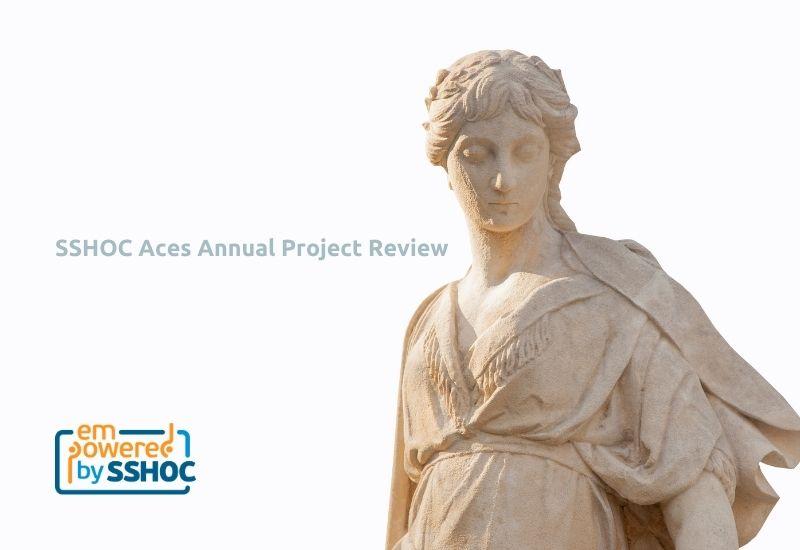
- Social Sciences & Humanities Open Cloud
SSHOC Aces Annual Project Review

Date:
17 February 2021
"The project has fully achieved its objectives and milestones for the period and delivered exceptional results with significant immediate or potential impact."
A positive midterm review confirms that Horizon 2020 project SSHOC has established a rock-solid position for the social sciences and humanities in EOSC which will be sustained well beyond the life of the project.
SSHOC will draw to a close in early 2022 and was designed primarily to enable better social sciences research by promoting open science and FAIR principles, creating in the process an umbrella cloud overarching the research networks and infrastructures which constitute the partner cohort. The research infrastructure group includes SSHOC coordinator CESSDA, as well as ESS Survey, DARIAH, CLARIN, SHARE and E-RIHS.
According to the project reviewer, SSHOC is "impactful by design", and the work being carried out contributes materially to the advancement of European policy objectives as these relate to the creation of the social sciences area of EOSC.
Strong Brand Recognition
In particular the reviewer noted the power of the SSHOC brand in facilitating engagement with established SSH communities, adding that the "significant number of trainings, webinars and video interviews" had "contributed to the clear visibility of the project, its activities and goals." She also commended the multiplier effect of the SSHOC train-the -trainer strategy, and noted that the training materials gathered to date "provide a solid ground for disseminating SSHOC and serving the social sciences research community."
Effective Community Building
Noting that the "enabling technologies and tools put together by the project have the potential to really cover the social sciences and the humanities sector in the EOSC, and to enhance the research practices in these fields", the reviewer also said, “A very good community building and trainings strategy has been adopted with significant results."
Potential for Increased Impact
Says Ron Dekker, CESSDA CEO and SSHOC Project Coordinator, "We were very satisfied with the reviewer's comments and share her conviction that the social sciences and humanities will have an increasingly important role both for society and for single individuals. We indeed foresee a significant increase in the potential future impact of SSHOC. Undoubtedly the feedback and recommendations received during the review have strengthened our commitment to making that increase a reality".
Next Steps

The four-day Realising EOSC event, organised during November 2020 in cooperation with FREYA and EOSC-hub, provided SSHOC with the first opportunity to follow up on two recommendations which emerged from the report: to strengthen relationships with policymakers, and to forge links with Europeana. Liina Munari from the European Commission Communications Networks, Content and Technology Directorate-General was welcomed as a keynote speaker, and Europeana's Ad Pollé joined the speaker group in the citizen science session.
Read the report Realising EOSC: A Virtual Conference with a Difference
The SSHOC Project
The Social Sciences and Humanities Open Cloud (SSHOC) project is one of the activities foreseen under INFRAEOSC 04-2018, which supports the integration and consolidation of thematic e-infrastructure platforms in preparation for connecting them to the European Open Science Cloud (EOSC).
SSHOC will provide the social sciences, humanities, and heritage science contribution to the EOSC by:
- Interconnecting existing and new infrastructures to build the SSH Cloud
- Maximising data reuse through Open Science and FAIR principles
- Providing training resources, a training network, and training activities
- Setting up an appropriate governance model
